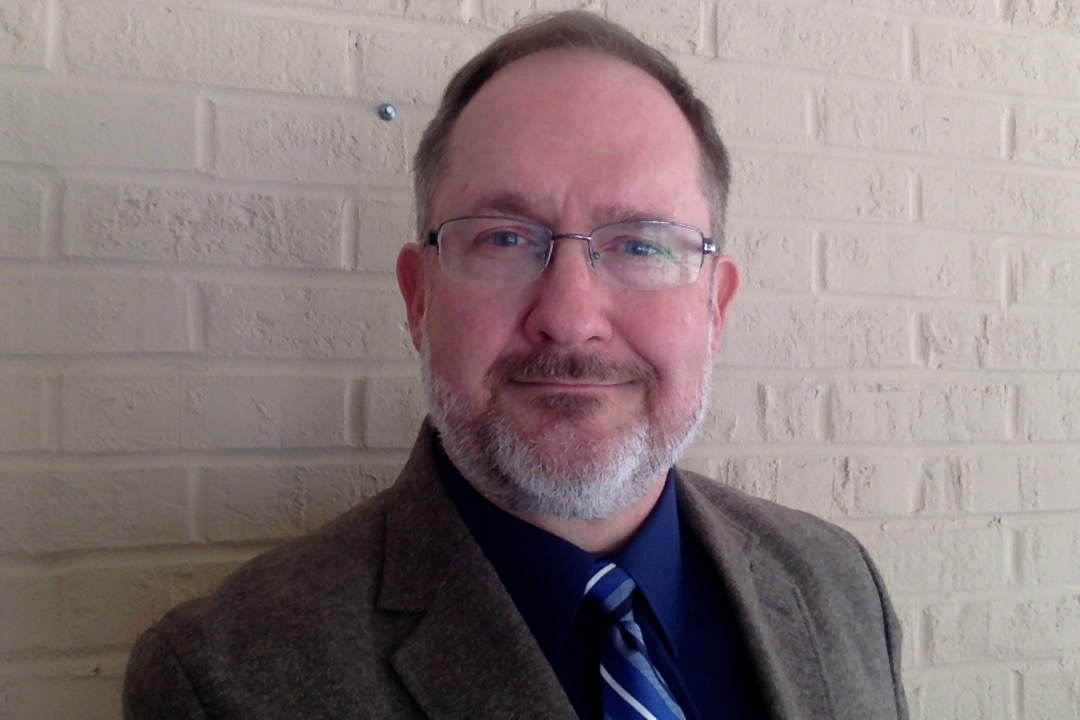
Dr. John Iverson (Ph.D. 2020), adjunct instructor of theatre at Middle Georgia State University (MGA) Cochran, made waves in the theatre world last fall with his production of The Distance Between Us, an original play developed using techniques derived from verbatim theatre – a form of documentary theatre and the subject of Iverson's dissertation at Texas Tech University. The innovative production, which weaves together personal stories, was created from interviews with MGA students that were then transcribed, arranged, and staged with students performing their own words. The resulting performance, though bound by COVID distancing and mask requirements, succeeded in providing a unique opportunity for students to share their personal stories with a receptive audience.
Earlier this week Dr. Iverson joined me for a Zoom call to talk about his work with verbatim theatre from his home in Cochran, a small town about 120 miles Northwest of Atlanta.
How were you introduced to verbatim theatre?
A few years ago, I encountered the Telling Project when I was home in Austin between semesters. They go from city to city across America and interview veterans. Then, they take the transcripts from those interviews and create dialogue for a play. It's a form of documentary theatre that has its own unique kind of impact. As a veteran, I was so excited to be part of something that was effective, powerful theatre on one hand, and on the other was dealing with something in a very real way that allowed a community to get to know the veterans that live there and to understand better what they went through. It was so powerful to me.
What inspired you to do verbatim theatre at MGA Theatre Cochran?
The real motivator was I didn't want to make up some contrived reason for justifying surgical masks or for why my actors never got within six feet of each other. And so, the idea came to me. Verbatim theatre doesn't have a lot of choreography or blocking. The initial idea was for the students to discuss their experiences during the pandemic, but they said, "You know, we are sick of talking about this." So, I suggested that we just do interviews about their college experiences – maybe there are commonalities.
How did it go?
It's kind of risky to jump into a verbatim theatre piece when you don't really have a unifying idea other than, "What are our shared experiences?" Once I explained it, the students were really into it. And we did a pretty good job. I had one student come out as transgender. That was the first time he had spoken about it publicly, which to me is a testament to the idea that so many people are waiting for an opportunity to tell their story. It was the same with veterans. There's just not a lot of people that go up to veterans and say, "Hey man, tell me about your experiences." So, to give them the opportunity in the right setting, and to allow them to bring that to the public, was powerful and therapeutic for both the participant of the audience member.
I get how there was some catharsis for the performer in telling their story. How was it therapeutic for the audience?
You just drilled into one of the basic questions the chairs were asking when I defended my dissertation. I think there was this perception about what was happening in the Middle East based solely on Hollywood movies and partisan cable news. And there was this feeling like, "I don't really know what the soldiers experienced." Everyone was wondering, "Why are our veterans killing themselves?" They didn't understand how traumatic the war in Iraq was. I don't know that therapeutic is the right word, but they got to connect with individual experiences.
Sounds like it was enlightening for the audience and maybe triggered empathy?
Yeah, maybe in a way they weren't expecting.
Do you have any plans to work with verbatim theatre in the future?
I would like to do this here in Cochran. I would like to interview the townspeople and talk about the town's history and put that out there. There's almost this invisible wall here between the university and the town. The university gets a diverse group of students from different parts of Georgia, and much of the town doesn't embrace them. They resent each other for some reason. My hope is that I might be able to do something about that. Community is being created through theatre across the country. I think we can do it here too.
